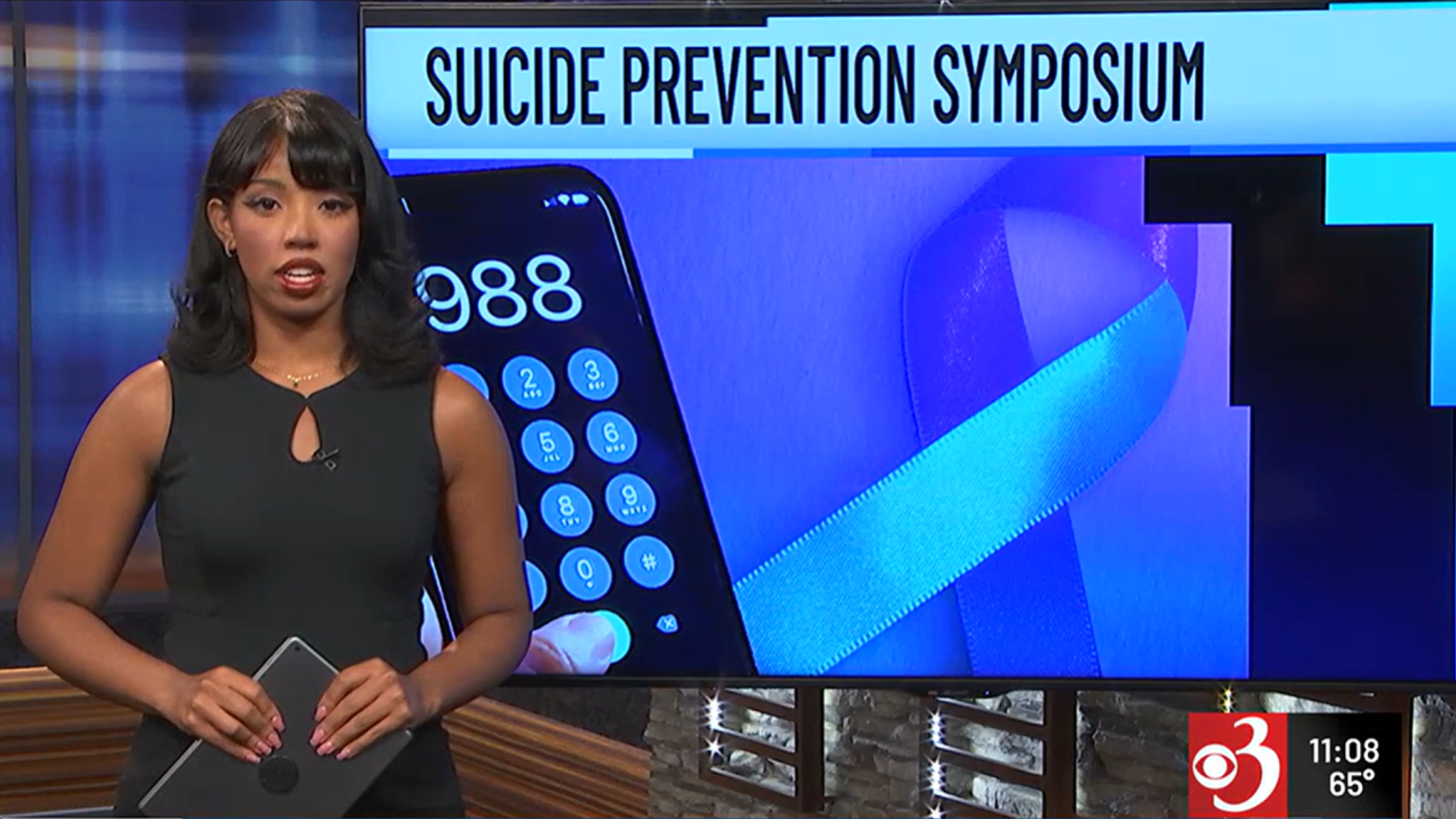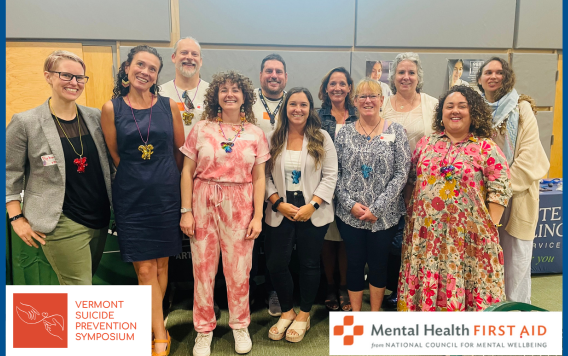Experts hold suicide prevention symposium in Randolph

United Way of Northwest Vermont partnered with the Vermont Collaborative for Practice Improvement & Innovation to put on the Vermont Suicide Prevention Symposium on September 13, 2024. Click here to watch WCAX’s coverage of the sold-out event.
Story by Laura Ullman
RANDOLPH, Vt. (WCAX) – Vermont’s suicide rate is higher than the national average. On Friday, the brightest minds in the region on mental health addressed how our community has struggled to prevent suicide in the past, and shared cutting-edge research on the path moving forward.
“Suicide is preventable, and the more that we talk about it, the more awareness we bring to this issue and the more comfortable people become with the stigma there is with it,” said Khadija Moussadek, a student at the Larner College of Medicine.
Stigma was a word mentioned countless times at the suicide prevention symposium in Randolph. Those attending ranged from advocates and educators to clinicians and peer support counselors. They all agree that one of the most important changes Vermont can make in helping to prevent suicide is talking about it openly, honestly, and without shame.

“If we dance around the topic, we’re conveying that suicide is unspeakable, and then we’re also conveying if you have suicidal thoughts, that it’s unspeakable,” said psychotherapist Stacey Freedenthal.
Freedenthal, a keynote speaker of the event, is one of the leading scholars on suicide prevention in the country. As a professor at the University of Denver, she teaches future social workers the newest research on how they can best prevent suicides in their careers.
“I think a lot of times clinicians are understandably worried about their needs too, like their need to not lose somebody to suicide,” said Freedenthal.
She says the typical approach when a client shares their desires to kill themselves is usually for the clinician to ask if they have a plan. She’s hoping her students flip the script. New research shows centering the patient’s story instead of doing a risk assessment is a more effective method.
Improving clinician-patient relationships is just one way new research is helping to prevent suicide. In Burlington. Moussadek is creating an e-learning module to educate care providers on how and when to intervene with someone at risk.
“There’s such a gap in knowledge and training for suicide prevention and identifying self-harm behaviors,” said Moussadek.
While clinicians and peer support counselors adjust their training, experts say that there are things all of us can do to help prevent suicide. For gun owners, there’s a new way to protect your loved ones, called “mapping”.
“There are places that you can actually go when you think that someone in your family or yourself is in crisis, and you can have them safely store your firearm for you,” said Dr. Laura Grubb from the Substance Abuse and Mental Health Services Administration.
The symposium had almost 20 workshops and 150 attendees, each with innovative ideas for preventing suicide, but organizer Alex Lehning says the most important takeaway is that there are multiple pathways to prevention.
